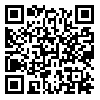Accepted Articles
Back to the articles list |
Back to browse issues page
1- Department of Psychology, University of Tehran, Tehran, Iran.
2- Department of Cognitive Psychology, Institute for Cognitive Science Studies (ICSS), Tehran, Iran.
2- Department of Cognitive Psychology, Institute for Cognitive Science Studies (ICSS), Tehran, Iran.
Abstract:
Aims: The present study examined the extent to which the methods of Broadening attentional scope (BAS) during acquisition, and working memory interference (WMI) during reconsolidation could influence memory formation process.
Methods: 95 participants were randomly assigned to inactive control (n=30), BAS (n=33), and WMI (n=32) groups. During watching a traumatic film, participants in the BAS group were instructed to allocate their attention to the peripheral details of the film, while participants in the WMI group performed a spatial working memory task. Memory vividness and emotionality were assessed before and after the intervention using a visual analogue scale, and valence, arousal, and dominance were measured by self-assessment manikin immediately after watching the film. Moreover, all the participants were asked to record their intrusive memory for 3 days after the experiment. Statistical software package SPSS was used for group comparisons.
Results: Our results suggested that interfering with visuospatial working memory during retrieving emotionally valanced memories could significantly reduce the level of vividness of mental images from pre to post assessments (p=0.004). However, in terms of emotionality, arousal, dominance and the number of intrusive memories, we found no significant differences between the three groups.
Conclusions: Participants in the WMI group outperformed in blurring the negatively valanced memory at the post assessment. In contrast with our primary assumption, broadening attentional scope didn’t make any significant changes compared to the other two groups. Future studies with larger sample size and objective measurements may provide additional evidence on the efficacy of these methods, specifically in the context of clinical implication.
Methods: 95 participants were randomly assigned to inactive control (n=30), BAS (n=33), and WMI (n=32) groups. During watching a traumatic film, participants in the BAS group were instructed to allocate their attention to the peripheral details of the film, while participants in the WMI group performed a spatial working memory task. Memory vividness and emotionality were assessed before and after the intervention using a visual analogue scale, and valence, arousal, and dominance were measured by self-assessment manikin immediately after watching the film. Moreover, all the participants were asked to record their intrusive memory for 3 days after the experiment. Statistical software package SPSS was used for group comparisons.
Results: Our results suggested that interfering with visuospatial working memory during retrieving emotionally valanced memories could significantly reduce the level of vividness of mental images from pre to post assessments (p=0.004). However, in terms of emotionality, arousal, dominance and the number of intrusive memories, we found no significant differences between the three groups.
Conclusions: Participants in the WMI group outperformed in blurring the negatively valanced memory at the post assessment. In contrast with our primary assumption, broadening attentional scope didn’t make any significant changes compared to the other two groups. Future studies with larger sample size and objective measurements may provide additional evidence on the efficacy of these methods, specifically in the context of clinical implication.
Keywords: Working memory interference, Emotional memory, Broadening attentional scope, Vividness
Send email to the article author
| Rights and permissions | |
 |
This work is licensed under a Creative Commons Attribution-NonCommercial 4.0 International License. |







